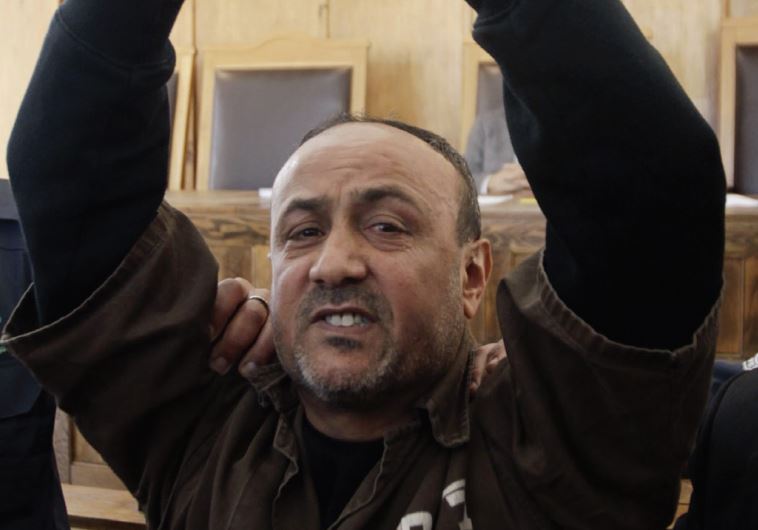As the Palestinian street seethes, Marwan Barghouti makes his bid to replace Mahmoud Abbas
So far, Barghouti is the only senior PLO-Fatah leader who has had the courage to officially announce his candidacy.
 Jailed Fatah leader Marwan Barghouti gestures before a Jerusalem Magistrates’ Court hearing in 2012.
Jailed Fatah leader Marwan Barghouti gestures before a Jerusalem Magistrates’ Court hearing in 2012.